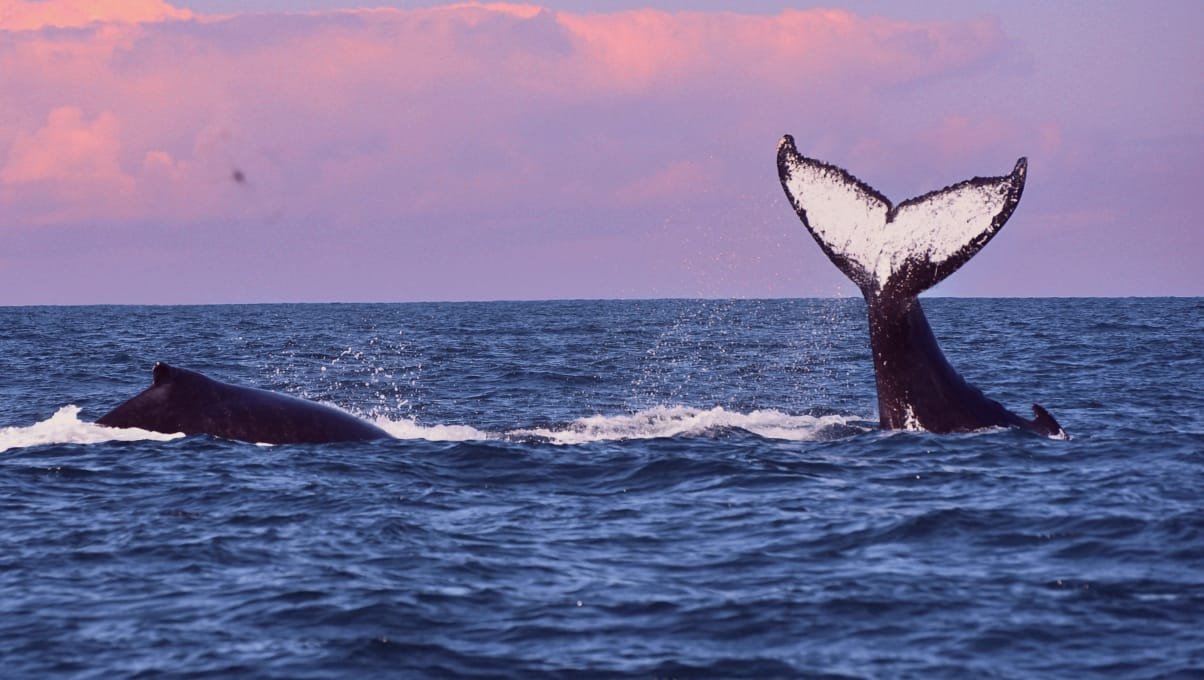
Humpback Whale World Congress
Tadoussac, Québec 2025
Tadoussac’s status as a global destination for whale research and conservation makes it the ideal setting for this congress. Under the theme "Coexisting with Whales, for our Oceans", we look forward to gathering researchers, conservationists, and marine enthusiasts to advance the understanding and protection of humpback whales and their habitats.
Invited Speakers
Below are the profiles of our esteemed speakers:
-

Dr. Ted Cheeseman
Ted is the co-founder and director of Happywhale, a research collaboration and citizen science web platform that is transforming data science for tracking individual whales. Ted recently completed a PhD studying North Pacific humpback whale populations, a broad collaborative study that leveraged AI technology to identify and track almost every living whale in the North Pacific. Ted is particularly inspired to develop technology that fosters research collaboration, access to previously inaccessible learning, and building community around ocean ecosystems.
-
Dr. Phil Clapham
Until his retirement in 2019, Dr Phil Clapham led the Cetacean Ecology and Assessment Programme at NOAA's National Marine Mammal Laboratory in Seattle, where he supervised a team of 27 scientists studying cetacean species ranging from harbour porpoises to blue whales. His own research focuses on the population biology, behavioural ecology and conservation management of great whales. Phil holds a PhD in zoology from the University of Aberdeen (Scotland). Over the past forty years he has advised several governments and other bodies on whale research and conservation. He has published over 190 peer-reviewed papers on whales and other cetaceans, as well as five books and a novel.
-

Dr. Erich Hoyt
Erich Hoyt has spent much of his life on or near the sea, working with whales and dolphins and marine conservation. An award-winning author, he has written or co-written more than 25 books and hundreds of magazine articles on whales, dolphins, as well as ants, insects, wild plants and other subjects. In 2013, Erich won the European Cetacean Society’s Mandy McMath Conservation Prize for his body of work.
Erich is currently Research Fellow with WDC, Whale and Dolphin Conservation, in the UK. He created WDC’s Healthy Seas Program and a focus on marine protected areas. -

Dr. Robert Michaud
Robert Michaud decided to found the Group for Research and Education on Marine Mammals (GREMM) in 1985, with the aim of studying whales in order to better understand and protect them. He intended to use his new knowledge to nurture the public's fascination with whales and raise awareness of the importance of protecting the marine environment.
His research with GREMM focuses mainly on the behavioral ecology of great whales and the impact of tourism. In 1987, he co-founded the St. Lawrence National Institute of Ecotoxicology (SLNIE) with Pierre Béland, and is currently in charge of a long-term study of the St. Lawrence beluga population. -

Prof. Joy Reidenberg
Joy S. Reidenberg, Ph.D. is a Professor at the Icahn School of Medicine at Mount Sinai in New York City, Fellow of the American Association for Anatomy, and Fellow of the Society for Marine Mammalogy.
Much of Dr. Reidenberg’s recent work is focused on how animals adapt to environmental extremes. Current research is focused on the anatomy of whales, dolphins and porpoises, especially in understanding how they produce sounds and withstand the pressures of diving.
Dr. Reidenberg is internationally famous for her documentary work, being best known as the comparative anatomist for "Inside Nature’s Giants".
Our partners









